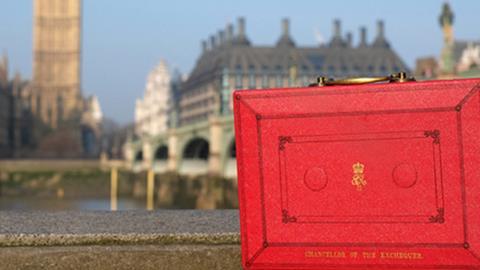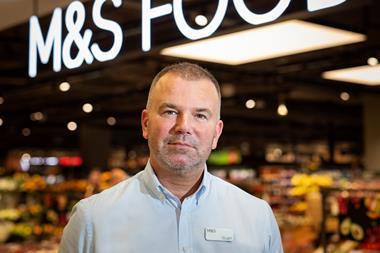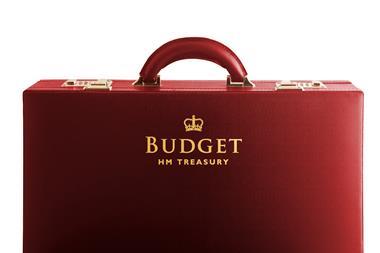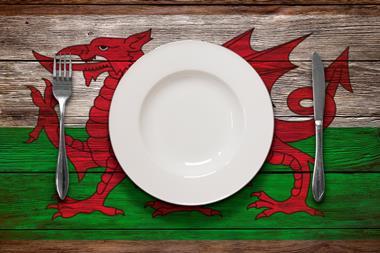After the chaos unleashed by the mini-budget last October, Jeremy Hunt’s ‘steady as she goes’ budget today was not exactly unwelcome. However, it left grocery industry participants frustrated that more help isn’t being offered to businesses under acute pressure.
Rather than short-term boosterism or pulling rabbits from hats, Hunt’s budget looked to solidify the more medium-term economic promises PM Rishi Sunak had already pledged to focus on before the next election.
So the focus was on underlying economic growth – including inflation reduction – and tackling some of the structural labour market and economic issues that are seen as a barrier to this growth.
Given OBR figures predict the UK economy will contract 0.2% this year (despite avoiding a technical recession) and real living standards are still expected to fall by 5.7% over the next two years, it’s fair to say UK plc is far from out of the woods.
So, what were the key themes affecting the grocery and food and drink sectors?
- Cost of living: Inflation will fall by more than previously expected, down to 2.9% by the end of the year. And the UK will avoid recession, it emerged, as 2022 GDP expectations were upgraded, despite contraction this year. Consumer spending power will be boosted by the extension of the energy price cap for a further three months.
- Fuel: Duty was frozen yet again and 5p duty cut will be maintained for another 12 months.
- Pubs: New “Brexit pubs guarantee” will see an increase in draft relief for pubs – some 11p lower per pint than will be paid in supermarkets.
- Business taxes: Again, there was no fundamental change on business rates, although corporation tax will go up to 25% from 19% this year. However, a replacement for the R&D ‘super-deduction’ was announced, whereby businesses will have full capital exemption on capital investment for three years – worth £9bn a year.
- Labour market: A series of incentives were announced to attract the seven million people not in work to fill the one million job vacancies – from disability support to tougher sanctions on Universal Credit claimants who are able to work and training for the over-50s. Extending free childcare is also targeted at raising the labour participation of parents.
The industry reaction has been mixed. Many were underwhelmed by the level of support offered to struggling businesses.
On the retail side, BRC CEO Helen Dickinson commented: “In the face of volatile demand caused by high inflation and low consumer confidence, measures to support households with the cost of living, such as the ongoing energy bill support and changes to childcare costs, are welcomed.
“However, many businesses are weighed down by myriad higher costs right through the supply chain. Government must do more to limit one of the biggest drags to retail investment, which is oncoming regulatory burdens heading down the track, or risk a crash in business investment and further inflationary pressures.”
Harsher criticism came from the Association of Convenience Stores. CEO James Lowman said: “A budget focused on growth and investment will come as no comfort to those who will have their entire profit margins wiped out this year by excessive fixed energy contracts. Convenience stores have been left out in the cold by the Chancellor, being left to face crippling energy bills by themselves and putting thousands at risk.
“Difficult decisions will have to be made in the coming months by independent retailers about the future of their businesses, which will have a negative impact on investment and reduce the number of available jobs in communities, all while bolstering the profits of energy companies.”
John Webber, head of business rates at Colliers, lamented the lack of business rates reform. “The government’s lack of comment on business rates in its budget today is desperately disappointing – with no reassurance that it has engaged with the industry – despite the fact the new 2023 revaluation list becomes live in two weeks’ time.”
Sam Martin, CEO of Peckwater Brands, concurred. “To allow hospitality to thrive, businesses required a major overhaul of the business rates system, a shot in the arm to staffing, and increased support with energy costs. The measures laid out for hospitality in the spring budget fall short of the level of support that industry leaders have been crying out for over the past year.”
Even those benefiting from the draft relief in pubs were slow to raise their glasses.
Nuno Teles, MD Diageo GB, said: “Today’s decision is a hammer blow for pubs, drinkers and for scotch, a UK home-grown industry supporting tens of thousands of jobs. We urge the Chancellor to reverse this punitive and inflationary tax hike.”
The Society of Independent Brewers noted: “While it’s welcome that the Chancellor has topped up the draught relief from 5% to 9.2%, by increasing overall duty by RPI, the government has eroded the benefits of the wider big bang changes to the alcohol duty system that are being introduced in August.
“We are also disappointed in the lack of support for pubs, bars and taprooms, which are a critical part of small brewers’ businesses and are facing existential threats from energy price hikes, a cost of living crisis and other inflationary costs.”
The Federation of Wholesale Distributors added: “The duty cut for draught product is welcome but the broader alcohol stealth tax introduced by the Chancellor will harm the convenience sector, ultimately raise the price of a pint in pubs and serve to deepen inflation and the cost of living crisis.”
On labour issues, the FWD said: “The Chancellor has failed to outline how the major challenges of labour shortages plaguing the economy will be addressed. We welcome the introduction of returnerships and increased skills bootcamp funding, but these are medium-term solutions and a short-term response should be introduced to support the economy in the here and now.”
So while things are better than feared, it’s still a tough time for UK businesses wrangling against the cost of living crisis.




















No comments yet